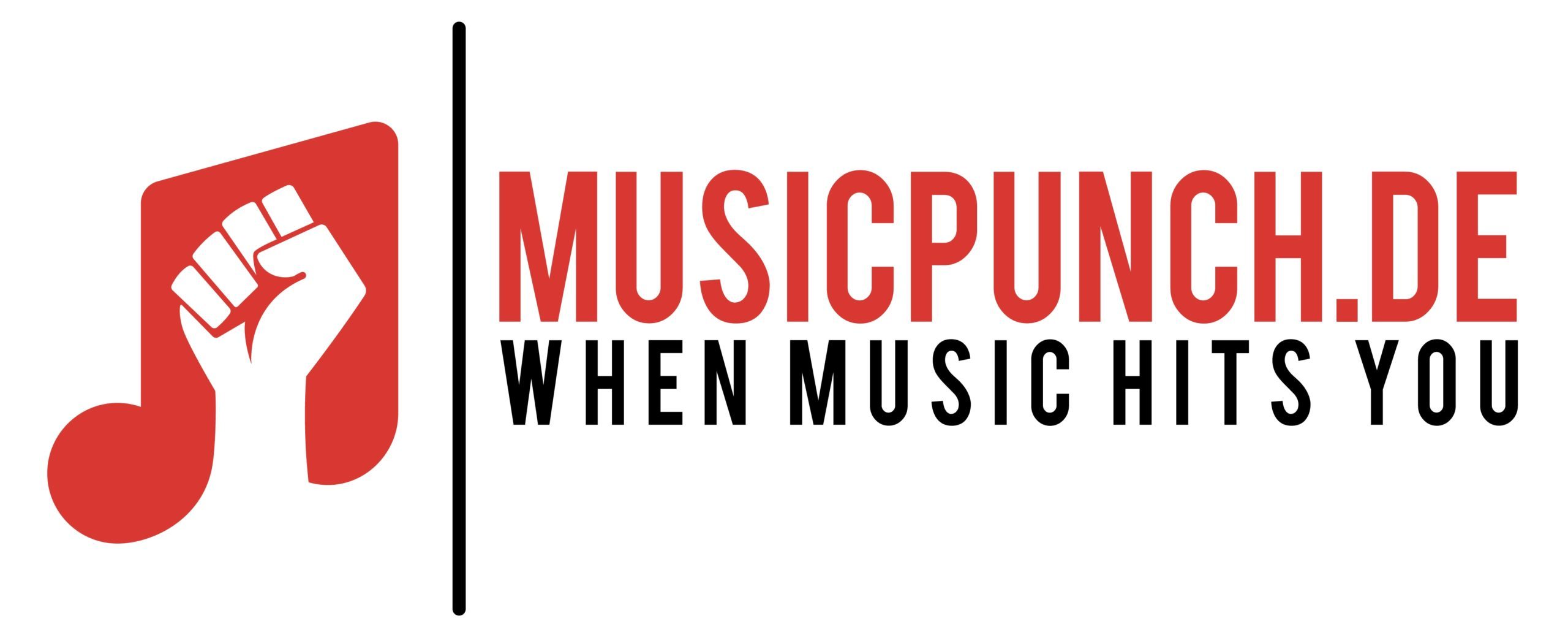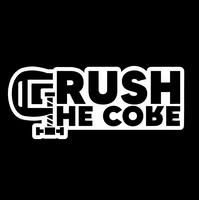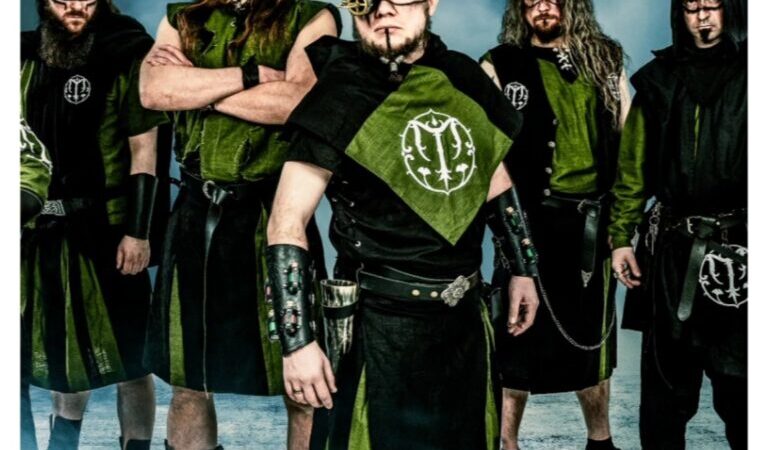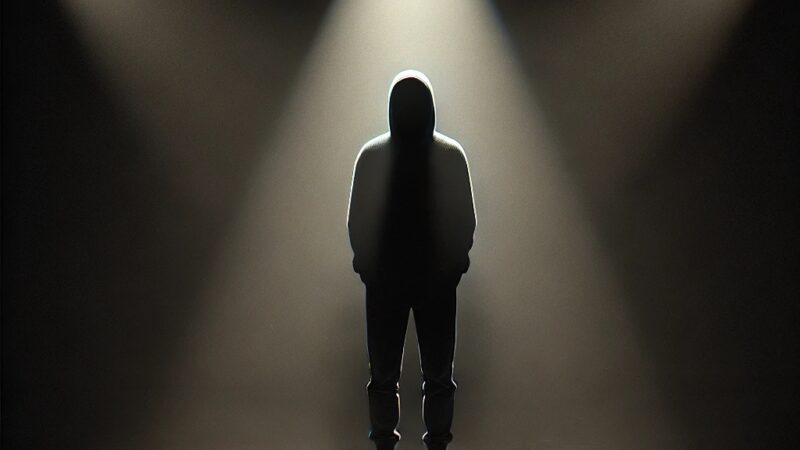Laurence Jones im Interview (DE + ENG)

Band: Laurence Jones
Genre: Blues Rock / Crossover
Land: UK / Liverpool
Vermittler: KINDA Agency – Sam
Dass das Leben nicht immer einfach ist und Musik eine gewisse Heilung bringen kann, dass Blues von Veränderung lebt und viele weitere interessante Gedankengänge, durften wir mit Laurence Jones besprechen.
Intro
Was ist komplexer? Singen, Texte schreiben oder Gitarre spielen?
Ich denke, im Laufe der Jahre hat es sich immer wieder verändert. Als ich anfing, fand ich das Songwriting aufgrund des Mangels an Erfahrung ziemlich schwierig, und man muss die Songs richtig hinbekommen und lernen, was gut klingt und was nicht, bevor man es auf Platte bringt. Aber ich denke, im Laufe der Jahre hatte ich immer das Gefühl, dass ich sehr sicher mit meiner Gitarre war und ich mich mit meinem Gesang verbessern musste, also habe ich viel trainiert und Gesangsunterricht genommen, als ich jünger war, um zu versuchen, den Standard auf das Niveau zu bringen, das ich wollte. Wenn ich meine eigene Band leiten würde, wusste ich, dass ich singen musste, also wusste ich das von klein auf. Ich denke, wenn ich jetzt unterwegs bin und all diese Erfahrungen mache, muss es das Singen sein, weil man nicht so viel Kontrolle über seine Stimme hat, wenn man müde ist oder sich nicht sehr wohl fühlt, kann man seine Stimme ein wenig verlieren, und das ist immer eine größere Herausforderung, wenn man versucht, damit umzugehen.
Der Blues tritt in den Hintergrund und wird durch andere Einflüsse ersetzt. Was bedeutet Veränderung für dich? Und wo ist die Grenze?
Ich finde es gut, ich denke, Veränderung ist gut. Ich denke, wenn man in die 60er und 70er Jahre zurückgeht, hat sich der Blues weiterentwickelt, man weiß, dass die Rolling Stones den Blues aufgriffen und sagten: „Schau dir diese erstaunlichen Musiker aus Amerika an“ wie BB King, Muddy Waters, Albert King, all diese großartigen Musiker, schau dir an, was Eric Clapton gemacht hat, als er Robert Johnson für den „Crossroads“-Song genommen hat. Und das zu einem der größten Blues-Songs zu machen, die du kennst. Also ja, für mich ist Veränderung wirklich gut und es ist gut, dass sie sich immer weiterentwickelt, denn es gibt nur so weit, dass man den Blues nehmen kann, denn für mich ist Blues ein Gefühl und es muss eine gewisse Struktur im Klang der Gitarre und im Stil des Spiels haben. Also ja, für mich mag ich moderne Künstler, die das herausfordern und Genres übernehmen.
Fragen zum Album
„Destination Unknown“ ist euer 7. Album und dein zweites bei Marshall Records. Wie hat sich die Kreation von deinem ersten zum Aktuellen verändert?
Nun, eigentlich haben wir das Studio gleich belassen, offensichtlich das Team im Studio Adam und Ollie, die Toningenieure, Chris Sheldon, Mixing Engineer, wir sind wieder in die Abbey Road gefahren, um das Mastering zu machen. Also haben wir dieses Fundament genau gleich belassen. Ich wechselte die Band, ich ging von Keyboards und einem Quartett zu einem Power-Trio über, wie es für mich begann und wo es begann. Also habe ich den Schlagzeuger gewechselt und ich hatte Ash Sheehan, der für Glen Hughes von Deep Purple und The Twang spielt, und ich habe auch Jack Alexander Timmis, der seit vier Jahren in meiner Band ist. Ash war mein Schlagzeuglehrer an der Universität und Dozent, er unterrichtete Musik.. Ab meinem 16. Lebensjahr hat mir Ash beigebracht, wie man wirklich auf der Bühne steht. Ich denke, es gab dort eine Menge Vertrauen, er hat eine Menge Erfahrung, hat viele große Gigs gespielt und ich und Jack haben eine großartige Freundschaft, wir waren lange zusammen unterwegs, haben viele Gigs gespielt, Hunderte von Gigs zusammen. Also ja, das Vertrauen zwischen den beiden Jungs war wirklich gut. Die wichtigste Änderung für dieses Album ist, dass ich es roher haben wollte, ich wollte, dass 90% davon live gemacht werden. Also waren alle Gitarrensoli nur Improvisation, ich habe nichts davon geschrieben.
Wir hatten nur einen Tag Vorproduktion, also trafen wir uns einmal, bevor wir ins Studio gingen und einfach die Strukturen fertigstellten. Aber ich habe wirklich darauf vertraut, dass die Band einfach ihren Stempel aufdrückt und ich hatte eine klare Vorstellung davon, wo ich mit den Songs hinwollte. Ich habe die Songs, ich würde sagen, die Hälfte des Albums über etwa drei Wochen in der Weihnachtszeit geschrieben, als die Musikindustrie zu Weihnachten geschlossen hat und alle geschlossen haben, es ist das einzige Mal, dass es so ruhig ist. Also habe ich meinen Kopf gesenkt, das Album geschrieben und es ist einfach ganz natürlich zu mir geflossen, ich habe alles mit einer Gitarre geschrieben, was wirklich Spaß gemacht hat, denn beim letzten Album habe ich zuerst den Gesang geschrieben. Ich habe eine sehr bewusste Entscheidung getroffen, dass es ein rockiges Album sein sollte, mit coolen Riffs und coolen Gitarrenklängen und in der Lage zu sein, mit diesem Power-Trio zu atmen und diese Kante dahinter zu haben, die meine Helden hatten, wie Jimi Hendrix. Für mich war der Aufnahmeprozess derselbe, aber die Band war in Bezug auf die Vorproduktion anders, weil ich denke, die Hauptsache ist, dass der Stil der Songs anders ist. Für mich hat dieses Album viel mehr Form, man zieht es an und kann sagen, okay, das ist ein Blues-Rock-Power-Trio-Album, während das letzte Album ein bisschen mehr in die Seele und in die poppige Seite eintaucht.
Das ist eine Richtung, mit „Bad Luck & The Blues“, die ich schon lange einschlagen wollte, und deshalb habe ich acht Alben gebraucht, um hierher zu kommen, mit all der Erfahrung, die ich auf dem Weg gelernt habe, und es selbst zu produzieren, genau so, wie ich es wollte.
Ist die Reise das Ziel und wurde die Reise erfolgreich abgeschlossen?
Vielleicht erreichst du eines Tages ein Ziel, aber ich bin definitiv noch nicht am Ziel. ‚Destination Unknown‘ auf dem letzten Album, das war der Titeltrack. Aber für dieses Album ‚Bad Luck & The Blues‘ drängen wir auf großartige Dinge, wir haben großartige Tourneen geplant, wir haben einige fantastische Sommerkonzerte gespielt, sind Headliner einiger großer Festivals in den Niederlanden vor über 12.000 Leuten. Es gab also ein paar Kneifmomente in diesem Jahr. Aber ich wollte einfach rausgehen und Musik spielen, die ich liebe, Musik, die meine Fans lieben und von der ich denke, dass sie meine Fans wollen. Und ja, geh einfach raus und hab eine gute Zeit.
Was war die größte Überraschung auf dem aktuellen Album?
Meine größte Überraschung war wahrscheinlich, dass alles so schnell zusammenkam. Ich hatte vier Songs, an denen ich sechs, sieben Jahre gearbeitet hatte, die es aber nie auf eines der anderen Alben geschafft haben, weil sie zu rockig waren und ich damals nicht das Gefühl hatte, dass das die richtige Entwicklung war. Ich bin also wirklich froh, dass ich ein paar dieser Tracks zurückhalten konnte und dass sie wirklich gut dazu passten, was für mich irgendwie zementierte, dass ich auf dem richtigen Weg war. Und weil die Gitarre auf diesem Album mehr gesprochen hat und die Gitarre viel freier ist und es viel mehr Riffs gibt, hat es mir einfach mehr Spaß gemacht und der Gesang schien dazu zu passen. Ich denke, was ich wirklich tun wollte, war, diese Energie zu haben, und das ist es, was daran anders ist.
Das Album enthält unglaublich viel Emotion und Gefühl. Ist es schwierig, sich so zu öffnen?
Ich leide an Morbus Crohn, was ein schlimmes Magenproblem ist, mit Geschwüren im Magen, die nicht geheilt werden können. Ich bin in der Lage, einen Song zu schreiben, um in gewisser Weise eine Veröffentlichung zu bekommen und aufzuschreiben, wie ich mich dabei fühle. Hoffentlich inspiriert es andere Menschen da draußen, die leiden und Schwierigkeiten haben, mit dem täglichen Leben zurechtzukommen. Es gibt noch andere Dinge über Beziehungen und alles, womit sich die Leute identifizieren können. Ich schreibe immer ein paar Songs, um zu versuchen, ein bisschen aufmunternd zu sein und eine positive Einstellung zu haben, wie „Du bist nicht allein“. Und in „Take Control“ auch diese wirklich positive Einstellung, die immer gut für die Stimmung der Show ist und sie rausbringt.
Und wie viel von den Texten stammt aus deinen eigenen Erfahrungen?
Es fällt mir nicht schwer, mich zu öffnen, weil ich mein Herz auf die Zunge gelegt habe, bei einem Album hat es keinen Sinn, sich zurückzuhalten. Entweder du machst es oder du tust es nicht.
Für mich geht es um alles oder nichts. Deshalb kann ich mich darüber öffnen und ich bin ehrlich darüber. Und ich habe das Gefühl, dass es auf diesem Album eine Menge realer Themen gibt, über die es einfacher war, zu schreiben, die mir natürlicher kamen. Ich fühle mich wie auf früheren Alben, vielleicht habe ich es aus einer dritten Person geschrieben oder eine Geschichte erzählt. Aber wenn ich mich persönlich damit verbinde, fällt es mir auf der Bühne und im Studio wirklich leichter, einfach ein Bild in meinem Kopf zusammenzusetzen und mich genau so zu fühlen, wie ich bin.
Fragen aus Neugier
Wen würdest du niemals anlügen?
Ich lüge meine Verlobte nie an, welche gerade das Interview liest. (Anm. d.Redaktion: Qualitätskontrolle ist wichtig.)
Die erste Gitarre meines Bruders war eine Gibson. Du spielst auch mit Gibson. Was unterscheidet diese Marke von anderen?
Früher habe ich Gibson gespielt. Ich habe wirklich alle möglichen Gitarren ausprobiert, aber um ganz ehrlich zu sein, bin ich kein großer Fan von Gibsons. Deshalb spiele ich PRS-Gitarren.
Es ist ein Unternehmen, das ich mir ausgesucht habe und bei dem ich sein wollte. Ich wurde tatsächlich vor vielen Jahren von Gibson unterstützt, ich würde sagen, für ein oder zwei Jahre. Ich muss ungefähr sechs oder sieben ihrer Gitarren ausprobiert haben, aber für mich ist die Form der Gitarre und wie sie sich anfühlt, sehr wichtig, wie sie „angreifen“ und ich in sie eindringen kann. Ich stehe eher auf Single Coils als auf Humbucker. Ich mag die Konfiguration eines traditionelleren Strat-Stils, sagen wir mit den drei Tonabnehmerschaltern und den drei Tonabnehmern. Wohingegen eine Gibson in der Regel zwei Humbucker und vier Knöpfe hat. Es ist ein fremdartiger Weg. Das ist für mich eine andere Art zu denken.
Ist es immer noch spannend zu reisen und die Möglichkeit zu haben, eigene Musik zu spielen?
Es ist so toll, die Möglichkeit zu haben, meine eigene Musik zu spielen, weil ich seit meinem 17. Lebensjahr professioneller Musiker bin, seit ich 15 oder 16 Jahre alt bin. Also ja, ich bin wirklich gesegnet, eine Karriere zu haben und mit einigen tollen Leuten zu spielen und im Laufe der Jahre viel zu lernen.
Das Einzige, was ich wirklich schwierig finde, ist das Reisen, weil es schwer ist, an Morbus Crohn zu leiden, wenn ich eine Toilette brauche, oder es ist schwer, wenn man lange Nächte hat und keine Routine und verschiedene Lebensmittel, verschiedene Öle auf meinem Magen. Man ist nie am selben Ort, man versucht immer, eine Routine zu haben, aber es ist sehr schwierig, wenn man auf Tour ist. Ich mag den Reiseaspekt nicht, aber ich liebe den Gig und die Leute und die Fans zu treffen und die Reaktion der Leute zu sehen, wenn ich auf der Bühne stehe. Das ist der Grund, warum ich es mache, weil ich es liebe.
Europa ist immer toll – ich werde im Herbst in den Niederlanden und Belgien sein und freue mich sehr darauf, wieder dort zu spielen.
Was wäre dein geheimes Traumziel für ein Konzert?
Es müsste Madeira sein, da bin ich als Kind jedes Jahr hingefahren. Es ist ein wunderschöner Ort, sie veranstalten oft Musikfestivals da draußen. Als ich als Kind aufwuchs, als ich dort draußen war, gingen wir im Dezember hin und ich sah einige wirklich coole portugiesische Rockbands. Ich könnte dir nicht einmal sagen, wer sie waren, aber es wäre großartig, da rauszugehen und der Insel etwas zurückzugeben.
Vielen Dank für das Interview, ich hoffe es gefällt euch allen, bitte hört euch mein neues Album Bad Luck and the Blues an, das am 25. August erscheint. Cheers!
Intro
What’s more complex? Singing, writing or playing guitar?
I guess over the years it’s always changed. When I first started, I found song writing to be quite hard with the lack of experience, and you’ve got to get the songs right and you’ve got to learn what sounds good and what doesn’t before you put it on record. But I guess over the years I would always feel like I was very confident with my guitar and I had to better myself with my vocals so I put in a lot of training, had vocal lessons when I was younger to try and get the standard up to where I wanted it to be. If I was to front my own band I knew I had to sing so I knew that from a very early age. So for me I think being on the road now and going through all of that experience, it has to be singing because you haven’t got as much control on your voice if you’re tired or you don’t feel very well you might lose your voice a little bit and that’s always more of a challenge trying to deal with that.
The blues disappears in the background and is replaced by other influences. What does change mean to you? And where is the limit?
I think it’s good, I think change is good. I think if you go back to the 60s and 70s the blues has evolved, you know the Rolling Stones took the blues on and said „look at these amazing musicians from America“ like BB King, Muddy Waters, Albert King, all these great musicians, look what Eric Clapton did with taking Robert Johnson for the Crossroads song, and making that one of the biggest blues songs you know. So yeah for me change is really good and it’s good that it’s always evolving because there’s only so far you can take the bluesm because for me blues is a feeling and it has to have some structure within the sound of the guitar and the style of the playing. So yeah for me I like modern artists that do challenge that and take on genres.
New album
„Destination Unknown“ is your 7th Album and your second on Marshall Records. How did the creation change from your first on Marshall to the current one?
Well, actually we kept the studio the same, obviously the team in the studio Adam and Ollie, the engineers, Chris Sheldon, Mixing Engineer, we went to Abbey Road again to do the mastering. So we kept that foundation exactly the same. I changed the band, I went down from keyboards and a four piece to a power trio, how it started for me and where it began. So I changed the drummer and I had Ash Sheehan who plays for Glen Hughes of Deep Purple and The Twang and I also have Jack Alexander Timmis who’s been in my band for the last four years. Ash was my drum teacher at the university and lecturer, he was teaching music performance. So from the age of 16, Ash taught me how to be on stage really. So I guess there was a lot of trust there, he’s got a lot of experience, played a lot of big gigs and me and Jack have a great friendship, we’ve been on the road together for a long time, played a lot of gigs, hundreds of gigs together.
So yeah the trust between the two guys was really good. The main change for this album is I wanted it more raw, I wanted 90% of it done live. So all the guitar solos they were just off improvisation, I didn’t write any of them.
We just had one day pre-production so we met once before going into the studio and just got the structures done. But I really trusted the band to just put their stamp on it and I had a clear vision of where I wanted to go with the songs. I wrote the songs, I’d say half the album over about three weeks in the Christmas period when the music industry shut down for Christmas and everyone closed, it’s the only time it does. So I got my head down, wrote the album and it just flowed to me really naturally, wrote it all with a guitar which was really fun because sometimes with the last album I wrote the vocals first. I made a very conscious decision that I wanted it to be a rocky album and have cool riffs and cool guitar sounds and be able to breathe with that power trio, and have that edge behind it which my heroes had, like Jimi Hendrix. So for me the recording process was the same, but the band was different in terms of pre-production because I guess the main thing is that the style of the songs is different. For me this album has a lot more shape to it, you put it on and you can say, okay, that’s a blues rock power trio album whereas the last album dips a little bit more in the soul and into the poppy side.
This is a direction, with „Bad Luck & The Blues“ that I’ve really wanted to go down for a long time and that’s why it’s taken me eight albums to get here, with all the experience I’ve learned along the way and producing it myself, exactly how I wanted it.
Is the journey the destination and has the journey been successfully completed?
Maybe you do reach a destination one day but I definitely haven’t got to my destination yet. ‚Destination Unknown‘ on the last album, that was the title track. But for this album ‚Bad Luck & The Blues‘, we’re pushing for great things, we’ve got great tours lined up, we’ve done some fantastic summer gigs, headlined some huge festivals in the Netherlands to over 12,000 people. So there‘s been a few pinch me moments this year. But I just wanted to go out there and play music that I love, music that my fans love and that I think my fans want. And yeah, just go out there and have a good time.
What was your biggest surprise on the current album?
My biggest surprise probably was how it all came together so quickly. I had four songs that I’d worked on about six, seven years that never made it on any of the other albums because they were too rocky and I didn’t feel that was the right progression at the time. So I’m really happy I got to hold a few of these tracks back and that they fit in really well with this, which sort of concreted for me that I was onto the right track. And because the guitar was doing the talking more in this album and the guitar is a lot more free and there’s a lot more riffs, I was just enjoying it more and the vocals seemed to fit in around that. I guess for me what I really wanted to do was have this energy and that’s what’s different about this.
The album contains an incredible amount of emotion and feeling. Is it difficult to open up like that?
I suffer with Crohn’s disease, which is a bad stomach issue, with ulcers in your stomach, which can’t be cured. For me, I’m able to write a song to get a release in a way and put down how I feel about it. Hopefully it inspires other people out there that suffer and find it hard to get on with daily life. There’s other things about relationships in there and anything that people can relate to. I always do write a few songs to try and be a little bit uplifting and have a positive attitude, like „You’re not alone“. And in „Take Control“, having that real positive attitude as well, which is always good for the vibe of the show and to put out there.
And how much of the lyrics is from your own experiences?
I don’t find it difficult to open up because I put my heart on my sleeve, with an album there’s no point to holding back. You either go for it or you don’t.
For me, it’s all or nothing. That’s why I can open up about it and I’m real about it. And I feel like on this album, there’s a lot of real subjects that was easier to write about that came to me more naturally. I feel like on previous albums, maybe I’ve wrote it from a third person or telling a story. But connecting with it more personally really makes it easier when I’m on stage and in the studio to just put a picture together in my head and feel exactly the way I am.
Questions out of curiosity
What would you never lie to?
I never lie to my fiance who is the one who’s reading out the interview right now.
My brother’s first guitar was a Gibson. You also play with Gibson. What distinguishes this brand from others?
I used to play Gibson back in the day. I’ve tried all sorts of guitars really, but to be completely honest with you, I’m not a huge fan of Gibsons. That’s why I play PRS guitars.
It’s a company that I’ve chosen and wanted to be with. I was actually endorsed by Gibson many years ago, I’d say for a year or two. I must have tried about six, or seven of their guitars, but for me the shape of the guitar and how it feels is very important, how it can „attack“ and get into it. I’m very much into single coils rather than humbuckers. I like the configuration of a more traditional Strat style, say with the three pickup switches and the three pickups. Whereas a Gibson generally has two humbuckers and four knobs. It’s an alien way. It’s a different way of thinking for me.
Is it still exciting to travel and have the opportunity to play your own music?
it’s so amazing to have the opportunity to play my own music because I’ve been a professional musician since I was 17, it’s been 15 or 16 years. So yeah, I’m really blessed to have a career and play with some amazing people, and learn a lot over the years. The one thing I do find really hard is traveling because suffering with Crohn’s disease is hard if I need a toilet or it’s hard if you’re having late nights and no routine and different foods, different oils on my stomach. You’re never in the same place, you always try to have a routine but it’s very difficult when you’re on the road touring. I don’t enjoy the traveling aspect of it but I do love the gig and meeting the people and the fans and seeing people’s reaction when I’m on stage. That’s the reason why I do it, because I love it.
Europe is always great – I’ll be in the Netherlands and Belgium in the Fall and I’m very much looking forward to playing there again.
What would be your secret dream destination for a concert?
It would have to be Madeira, I used to go there as a kid every year. It’s a beautiful place, they often do put on musical festivals out there. As a kid growing when I was out there we used to go in December and I saw some really cool Portuguese rock bands. I couldn’t even tell you who they were but it would be amazing to be able to go out there and give something back to the island.
Thank you very much for the interview I hope you all enjoy it please check out my new album Bad Luck and the Blues out August 25th. Cheers!





